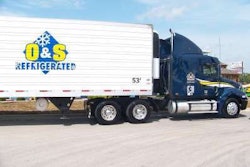The Agricultural and Food Transporters Conference of the American Trucking Associations on Tuesday, June 2, released a critique that it says refutes a report alleging safety concerns with hours-of-service exemptions.
Current law exempts agriculture carriers from hours-of-service regulations operating within a 100-air-mile radius from their central base of operation during planting and harvesting seasons. Similar provisions provide flexibility for other essential industries such as electric utilities and water well drilling, as well as short-haul trucking operations within many states.
The critique was written by Ronald Knipling, Ph.D, an independent consultant with 30 years of experience in traffic and motor carrier safety. Knipling has held senior government, university and consulting positions, including 12 years with the U.S. Department of Transportation. AFTC says Knipling’s critique points out many shortcomings and inadequacies of the Volpe National Transportation Systems Center study that is being used by various safety groups, including the Commercial Vehicle Safety Alliance, to call for ending the HOS exemptions.
“It seems unwise to base a regulatory and economic decision as significant as revocation of the short-haul agricultural HOS exemption solely on (inadequate) statistics,” Knipling concluded in his critique. “Imposing new agricultural HOS regulations would likely have little measurable effect on short-haul trucking safety.”
Knipling’s conclusions follow a recent letter signed by 50 agricultural organizations sent to leaders of the House Transportation and Infrastructure Committee that expresses support for maintaining the agricultural hours-of-service exemption during the transportation authorization debate.
The Safe, Accountable, Flexible, Efficient Transportation Equity Act: A Legacy for Users exempted agricultural carriers from the hours-of-service regulations if they operated only within a 100-air-mile radius from their central base of operation. “This exemption provides the flexibility that is essential for American agriculture to get crops in and out of the field and provide us with the food, fiber and biofuels that are part of our daily lives,” says Russell Laird, AFTC executive director. “Dr. Knipling’s analysis provides a solid academic review of the safety issues that some have alleged.”
CVSA on April 22 called for a repeal of hours-of-service exemptions for both agricultural and utility service motor carriers following the Volpe study, which found that agricultural carriers operating exclusively within a 100-mile radius had a 19 percent higher crash rate than agricultural carriers operating outside a 100-mile radius during the period of 2005-2007. The study also saw utility service motor carrier crash rates jump by 40 percent during this same period.
“Since driver-related factors are such a large contributor to crashes, it stands to reason that the hours-of-service exemptions provided in the last Highway Act (SAFETEA-LU) are largely responsible for the increased rates,” says Stephen F. Campbell, CVSA executive director, who called the Volpe study a compelling reason to repeal these hours-of-service exemptions. “Safety is clearly compromised by these exemptions, and they should be repealed in the upcoming Transportation Reauthorization Act,” Campbell says.











